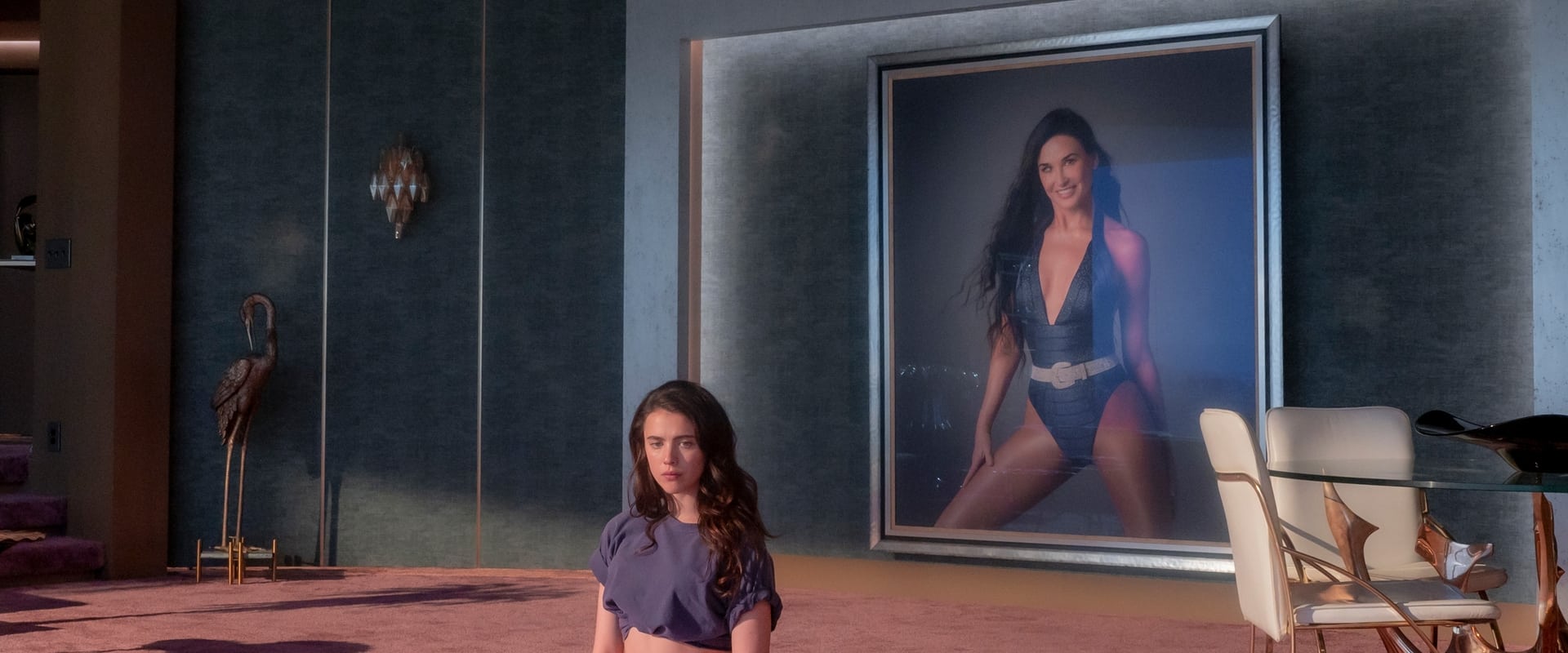“Life,” Daniel Espinosa’s slick sci-fi scare machine, wants to have you clutching your popcorn like a flotation device, while it slings you around the International Space Station with all the delirious glee of a B-movie with an A-team budget. It’s both a love letter and a ransom note to the genre—cheerfully pilfering from “Alien,” “Gravity,” and every ISS-daydreamer’s worst-case scenario, as if genre tropes were for the taking, like ketchup packets from a diner.
The setup is familiarly efficient: six scientists up in orbit, nipping and tucking samples from Mars, and, in the kind of scientific hubris that only happens when you cast Jake Gyllenhaal, Rebecca Ferguson, and Ryan Reynolds, coaxing life into something that looks somewhere between origami and H.P. Lovecraft’s aquarium. You can almost hear the screenwriters giddily checking boxes: Only a matter of time before “Calvin” turns from petri dish star pupil to cosmic man-eater. The crew is picked off with clockwork precision, each death a little nastier and twistier than the last—but, miraculously, the tension persists, like a rubber band stretched to the edge of snapping, even as you track the plot’s every move ten minutes in advance.
But if originality is not on the manifest, style surely is: cinematographer Seamus McGarvey gives you ISS corridors spun in cool blues and bruised grays, reflective armor glittering like pop-art sculpture, and zero-g blood swirling in the air like a perverse screensaver. Espinosa shoots space not as Kubrick’s vision of eternity but as a claustrophobic waiting room: here, there are no celestial vistas, only the sickening anticipation of what’s lurking behind the next hatch. You feel trapped, and that’s exactly the point—the movie’s sense of place is both its tightrope and its noose.
Our cast of scientific playthings is gamely up to the task, even if the script hands them all the psychological depth of a pressurized meal pouch. Gyllenhaal does the soulful haunted thing that’s become his bag—staring out of portholes, delivering lines with the weary tremble of a man who’s been up for six months and hasn’t seen a cheeseburger since launch. Rebecca Ferguson attempts gravity (pun intended) with steely British resolve, while Reynolds dispenses wisecracks like he’s still auditioning for Deadpool, until fate or the screenplay—perhaps sensing the fun is getting out of hand—shows him the exit. They’re enduring types, variations on the “brave, lonely, clever” theme song of sci-fi ensembles, but with a knowing wink: Gyllenhaal is almost too intense for the genre, Ferguson’s humanity is a life raft, and Reynolds smuggles in just enough charm for you to miss him when he’s digested.
Espinosa herself directs with the visible pleasure of a kid crashing model rockets: the pacing a series of gasp-and-release moments, running hot and cold, occasionally overlong—yes, even in orbit there are scenes that could use an editor’s scalpel—but never bored, always game for the next scare. The dialogue is laced with science-y buzzwords, enough to keep the spaceship nuts and IMDB trivia-hounds lightly engaged, though audiences with actual degrees may find themselves muttering corrections under their breath. But who’s here for peer review?
What lifts “Life” beyond competence is its sheer visual handsomeness and an underlying pulse of existential dread. The creature effects are queasily beautiful—the kind of thing you’d pause, half-horrified, half-impressed, wishing for a zoologist to pop in and tell you “Don’t worry, this could never really happen.” (Or could it? That’s the spiral the film is selling.) The look of the ISS, the haunted quiet of its chambers, is so vivid you’ll believe a schoolchild named Calvin could spell the end of humanity.
And there’s a sly kink of philosophy under all the tentacle-whipping and airlock gymnastics. “Life” nibbles at the age-old question: are we explorers, or are we children rapping at the Devil’s front door with a borrowed crowbar? Calvin, the Martian houseguest-turned-death angel, is a pointed rejoinder to every Hollywood space movie that ever treated the universe as a benevolent playground. By the time the film lands its punchline—one that’s as bracing and black-hearted as anything since “not the pod you thought”—you’re left feeling that curiosity may not just kill the cat, but the whole species.
Yet for all its pleasures, the movie is a blissfully unoriginal copy of better nightmares. The script recycles its menace with gleaming confidence, but never quite transcends it. For sci-fi junkies, it’s a greatest hits compilation: “Alien” for the Instagram era, with more money to burn and no interest in reinventing the wheel. But between the adrenaline smacks and the chilly beauty of it all, you’ll be too busy holding your breath to care.
So—should you see it? To paraphrase the best space movies: in space, no one can hear you yawn. But you won’t. “Life” is popcorn terror at orbital velocity: polished, tense, and self-aware enough to know it isn’t Shakespeare—just entertainment hurtling past the stratosphere, with enough bite to remind you why we keep inventing these nightmares. You may not remember its characters a week later, but you’ll definitely check your petri dishes twice before poking anything Martian. In the end, isn’t that what the movies are for?


